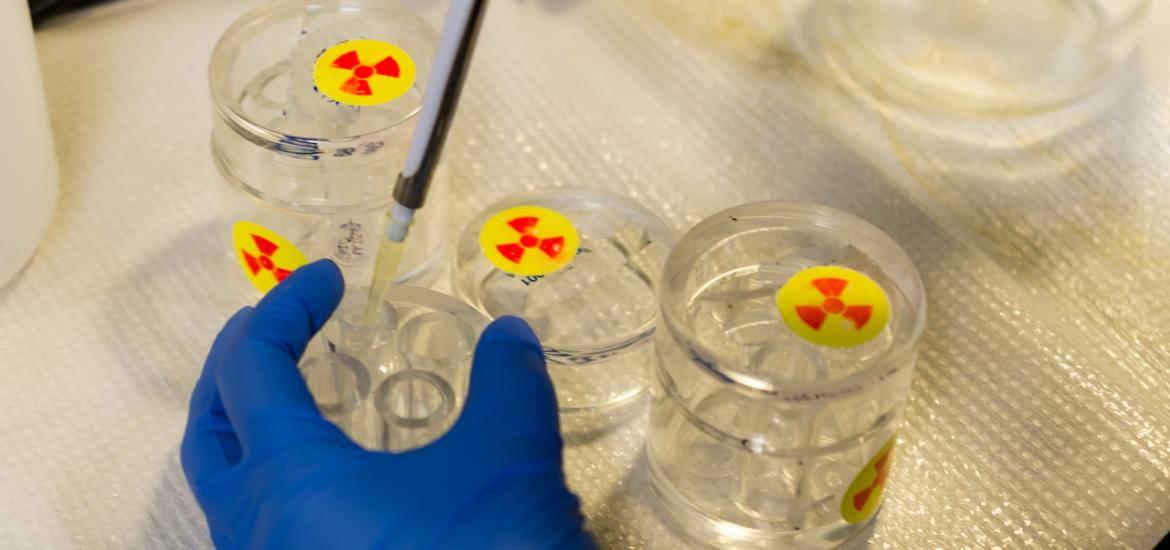
Lantheus calls time on me-too Pluvicto
Final survival analysis draws a blank, and Lantheus throws in the towel.
Final survival analysis draws a blank, and Lantheus throws in the towel.

Any remaining hope that mature overall survival data from PNT2002's Splash study might have improved its outcome has gone out of the window, with Lantheus on Wednesday confirming the end of its involvement in this PSMA-directed radiotherapeutic.
That's good news for Novartis, whose similarly acting Pluvicto managed to get across the regulatory finish line in March, though not before a long wait for a mature OS result from its corresponding PSMAfore trial. Any remaining hope for PNT2002 rests with Lilly, which acquired the molecule's originator, Point Biopharma, for $1.4bn in October 2023.
The setting in question for both assets is pre-chemo castration-resistant prostate cancer. Pluvicto was first approved for post-chemo use, but the PSMAfore study was a major test of its expansion into an earlier setting; however, an 84% rate of patient crossover scuppered OS data and effectively showed that patients did just as well whether they got chemo or Pluvicto first.
Diverging fate
This scenario was repeated when Splash yielded its first result in December 2023, showing an 85% rate of crossover, and drawing a blank on its OS analysis. But at that point the fate of the two projects diverged.
The FDA delayed approval of Pluvicto pending more mature OS analysis from PSMAfore, but final analysis did indeed show an improvement: a (still non-significant) hazard ratio of 0.91 emerged, apparently achieved thanks to only 60% of patients crossing over in the full analysis set, and the agency duly gave its regulatory blessing last month.
Not so PNT2002, whose 1.11 hazard ratio in Splash at 46% maturity remained largely unchanged when 75% of the patients had died. In February Lantheus said approval of PNT2002 was "not expected in the near future", and on Wednesday revealed that it wouldn't pursue an NDA or invest further in the asset.
The decision was taken after Splash deaths had reached 100% without materially changing the OS result, and again Lantheus cited the survival data being confounded by patient crossover. Clearly that's only true up to a point, as crossover ultimately didn't prevent Novartis from getting Pluvicto approved.
Moreover, the radiographic PFS benefit – the primary endpoint of Splash and PSMAfore alike – appeared to be numerically more impressive in the Pluvicto trial versus the PNT2002 study; that's despite both projects targeting PSMA and using lutetium-177 as the radioisotope.
Cross-trial comparison
| Trial (project) | Metric | 177-Lu anti-PSMA | Control | Stats |
|---|---|---|---|---|
| PSMAfore (Pluvicto) | OS (interim) | 19.3mth | 19.7mth | HR=1.16* |
| OS (final) | 24.5mth | 23.1mth | HR=0.91** | |
| Splash (PNT2002) | OS (interim) | 20.8mth | NE | HR=1.11^ |
| OS (final) | “Comparable” to previously reported readouts | |||
Notes: *84% crossover; **60% crossover; ^85% crossover. Source: OncologyPipeline.
Lantheus says it's working with Lilly to review the full Splash dataset. There remains the possibility of Lilly buying back rights to the full data and pursuing approval on its own, but this seems unlikely.
Indeed, it's not entirely clear how much of a factor PNT2002 was in Lilly's decision to buy Point. The target company also brought with it manufacturing capacity, seen as especially important in radiopharmaceuticals, as well as a presence in actinium-225.
And a separate Point asset that's licensed to Lantheus, the SSTR-targeting PNT2003, remains under FDA review. Interestingly, this was filed under an abbreviated pathway as a generic version of Novartis's Lutathera; whether PNT2002 could similarly have become a generic form of Pluvicto is now a moot point.
5919













